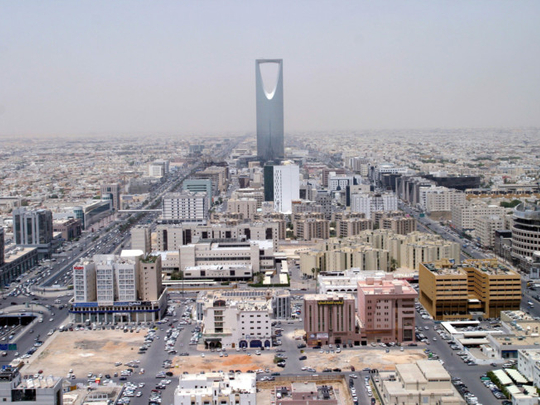
Speaking before an audience last week that was attended by senior Saudi human rights officials — which included the president of the Saudi Human Rights Commission, the president of the National Society for Human Rights (NSHR) and a number of senior officials and judiciary members — Saudi King Salman Bin Abdul Aziz emphasised the kingdom’s unflinching commitment in protecting human rights in line with Sharia.
From Al Yamamah Palace in the capital Riyadh, the Custodian of the Two Holy Mosques made it clear that no discrimination between citizens and residents as far as the law of the land is concerned would be tolerated. “The foundation of the state is based on adherence to Sharia, which calls for the protection of human rights. The rule of our country was established on the basis of justice, consultation and equality. The state’s systems are integrated into the protection of rights, achievement of justice, guaranteeing freedom of expression, impartiality and addressing the causes and reasons of division,” he said. “All citizens are equal in rights and duties, and the Basic Governing Law states that the State shall protect human rights in line with Sharia.”
Addressing the judiciary board, the king added that the Saudi judiciary was in the forefront of the government bodies, concerned with the protection and privilege of human rights. “The kingdom’s regulations have emphasised the independence of the judiciary that guarantees justice for all citizens and residents. Out of the keenness to protect human rights within the framework of Sharia, the state has established the Human Rights Commission,” he said.
His frank statements have come as a welcome shower of blessings to many expatriates who have felt that they were often at the receiving end of all ills befalling the kingdom. One such resident said: “I really appreciate the statement of the Saudi king in these hard times. Islam and the teachings of the Prophet (PBUH) do not teach discrimination. As long as we follow the teachings of our beloved Prophet (PBUH) we can live in peace and prosperity.”
A Saudi-born expatriate added: “We, the expat children born and raised in the kingdom, have the strongest bonds with the kingdom. For us, the kingdom is home as we have spent our entire lives here. We, the children of this kingdom, hope that one day we can be called citizens of this country! The king’s statements give us a glimmer of hope. Long live the kingdom and long live our King Salman!”
In the past, segments within the Saudi media had not been kind towards the presence of expatriates in their country and had often portrayed them as money-hungry carpetbaggers, an unjust and dishonest tag maligning countless generations of expatriates who have unflinchingly submitted their body, sweat and blood towards the building of the country.
Such statements are far from the truth. The reality is that millions have come and gone and millions remain among us today — some alone and distant from their families, tasked with the duties of helping oil the machinery that makes this country run. Many perform according to expectations, mostly in silence. Their isolation and loneliness in a foreign land cannot simply be compensated by the money they earn. Leaving behind fathers and mother, brothers and sisters, wives and children, these expatriates who reside among us ask little of us as they fulfil their duties. And yet they love and feel like the rest of us; the joys and pains that course through our emotions are not alien to them.
Enjoying a better life
Rather than attack, abuse or deprive them of their rights, let us honour them like we honour our own people. Let us bestow upon them our thanks and good wishes as we do to our near and dear ones. Let us thank expatriates of all faiths for the sacrifices they make daily by leaving their loved ones behind and coming to Saudi Arabia to help us enjoy a better life.
The king’s message was very clear and covered this segment of residents of the land. Let us begin by ensuring that their rights are protected and dispensed with in the manner and spirit that Islam has enshrined in us. The Prophet (PBUH) said: “The merciful ones will be shown mercy by the all-Merciful (Allah). Be merciful to those on Earth, Allah will be merciful to you.” This mercy extends to the proper execution of our obligations to our guest workers and the protection of their rights.
The Prophet (PBUH) also said: “The likeness of the believers in their mutual love, their mutual mercy and their mutual affection, is like a single body. If any part of it complains of an injury, the entire body responds with sleeplessness and fever ... Allah will continue to help the servant as long as the servant is helping his brother.”
As believers, our compassion as servants to our faith should not be confined to our immediate circle of family members and acquaintances. Instead, it should extend to entire mankind.
Tariq A. Al Maeena is a Saudi socio-political commentator. He lives in Jeddah, Saudi Arabia.










